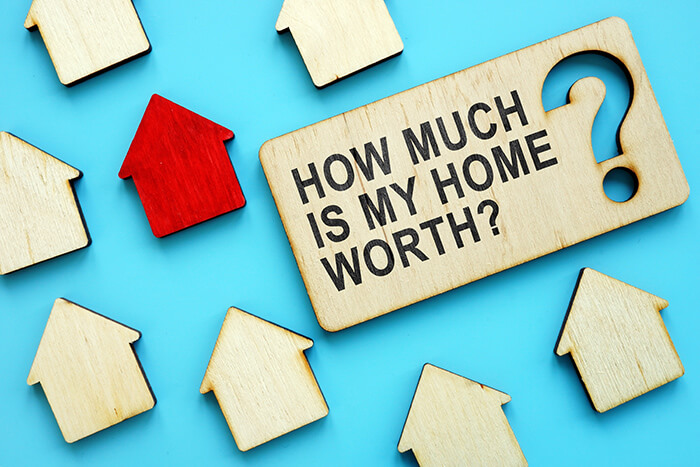Committed to making your mortgage approval process stress free and efficient for over 25 years, Sunlite Mortgage is one of Toronto, Canada’s leading mortgage brokerages.

Are you wondering how much your home is worth? You’re not alone; the astronomical cost of living, coupled with the current low-income increase environment, has created a groundswell of people looking to leverage the equity in their homes. To stay financially afloat, homeowners everywhere are using online tools, called automated valuation models, or AVMs, to determine their property value.
Using AVMs, measuring against comparable properties, and getting a home appraisal are all valuable exercises to assess the amount you could qualify for, as well as the value of refinancing your home at all. Ultimately, your property is worth what someone is willing to pay for it if the rules of supply and demand still apply. A more nuanced answer will depend on a number of factors.
Knowledge is power; properly assessing your home’s value can help you in the real estate market, whether you’re buying, selling, accessing your home’s equity or negotiating lower property taxes. If you’re refinancing, your insurance premiums and annual property taxes are all based on the value of your home. A home valuation could net you a tidy refinancing sum that you could apply towards debt consolidation.
By refinancing a home loan, you are paying off your current mortgage and replacing it with a new one. Assuming a new mortgage to pay down your credit card debt can, in many instances, pay off in the long run; mortgages have lower interest rates than credit cards, which could save you significant interest. In addition, paying off your credit cards can improve your credit score
Conversely, by refinancing, you’ll have less equity (i.e. you’ll own less) in your home. Plus, if you’re not careful about your spending, you can rack up new credit card debt on top of higher mortgage payments.
For these reasons and more, refinancing to pay off debt is a huge decision and you should only consider it if your debt is in the tens of thousands of dollars range (and is accruing daily interest).
Lenders will take into account your credit score, commercial debt, assets, your income as well as the amount you’re looking to borrow. They’ll also determine a loan-to-value (LTV) ratio based on the value of your home. To qualify for refinancing, you should have at least 10 percent equity in your home (sometimes up to 20 per cent) as well as a regular source of income and a credit score of 740 or more.
According to the Government of Canada, lenders allow homeowners to borrow up to 80 percent of the home’s value. From that amount, you must deduct the balance on your mortgage, as well as any other loans secured against your home.
Generally speaking, lenders require you to maintain at least 20 percent equity in your home after the refinancing process, but the threshold can vary depending on your credit score and the type of mortgage you have.
In Canada, 5-year fixed mortgages are the most common type of mortgage, but regardless of the terms you choose, it’s important to understand how refinancing works, as well as find the best possible rate. Sunlite Mortgage allows you to compare mortgage rates from the biggest banks and lenders in Canada.
Interested in learning more about home valuations, refinancing or current market trends? Consider visiting the Canadian Mortgage Brokers Association to review how Sunlite Mortgage’s agents stay in the know. The CMBA provides the latest licensing information, current trends, regulatory developments and a wealth of other resources to help you make informed decisions about your home and financial health.
Not all automated valuation models are created equal. Most online valuation tools on real estate sites are for lead generations, and as such can sometimes be less than accurate. By comparison, AVMs used by lenders are different; these sites use a “confidence score” to assess how close the estimate is to market value. For example, a confidence score of 80% means the estimate is within 20% of market value.
Professional AVMs, like the valuation tool at Sunlite Mortgage, can tell you the value of your home quickly and accurately. It’s easy to use, and the bestpart? It’s free!
Reach out to your Sunlite Mortgage Agent for more insight into refinancing, and how a home valuation can set you up for financial success.